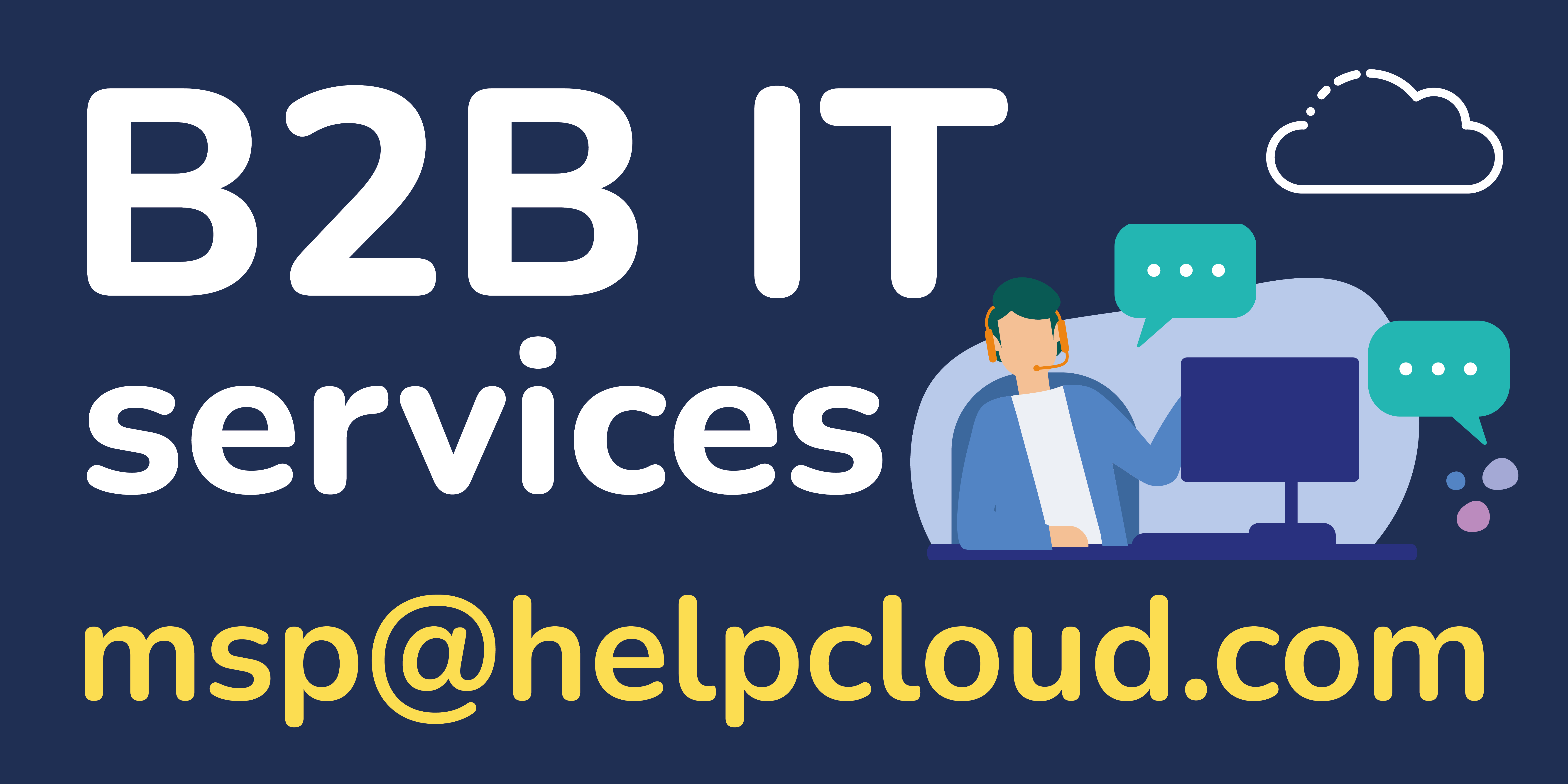In today's competitive business landscape, providing exceptional customer support is paramount for success. A robust and responsive helpdesk is essential for addressing customer inquiries, resolving issues, and maintaining customer satisfaction. Many businesses are turning to outsourcing as a strategic solution to manage their helpdesk services. Outsourcing helpdesk services offer a myriad of advantages that can significantly benefit your business. In this article, we will explore the top advantages of outsourcing helpdesk services and how they can contribute to your business's growth and success.
At HelpCloud we excel with remote technical support, aka helpdesk services. We boast over a decade of experience and much of our experience comes through consumer support. That has taught our remote technicians to be agile and customer focused, providing resolutions for a myriad of issues.
The Advantages of Outsourced Helpdesk Services:
1. Cost Savings:
One of the most compelling reasons to outsource helpdesk services is cost savings. Maintaining an in-house helpdesk team can be expensive, as it requires hiring and training employees, providing office space, equipment, and benefits. When you outsource, you pay a fixed fee to a service provider, eliminating the need for these additional expenses. Outsourcing can help you reduce labor costs while maintaining high-quality support.
2. Access to Expertise:
Outsourcing firms specialize in providing helpdesk services. They employ experienced professionals who are well-versed in customer support best practices and the latest technologies. When you outsource, you gain access to a pool of skilled experts who can handle a wide range of customer inquiries efficiently. This expertise can lead to faster issue resolution and improved customer satisfaction.
3. Scalability:
Businesses often experience fluctuations in customer support demand. During peak seasons or product launches, the volume of inquiries may increase significantly. Outsourcing helpdesk services allows your business to scale up or down as needed without the hassle of hiring and training additional staff. This flexibility ensures that you can meet customer needs efficiently and maintain service quality.
4. 24/7 Support:
Customer inquiries can arise at any time, including outside regular business hours. Outsourcing helpdesk services often means access to 24/7 support, ensuring that customers can get assistance whenever they need it. This round-the-clock availability can enhance customer loyalty and retention, as customers appreciate the convenience of immediate support.

5. Focus on Core Competencies:
By outsourcing helpdesk services, your business can focus on its core competencies and strategic initiatives. When you don't have to worry about managing a helpdesk team, you can allocate more resources and attention to areas such as product development, marketing, and business expansion. This strategic focus can drive overall business growth.
6. Improved Response Times:
Outsourcing helpdesk services can lead to improved response times for customer inquiries. Service providers often have well-defined processes and technologies in place to ensure that inquiries are handled promptly. This can result in faster issue resolution and a more positive customer experience.
7. Enhanced Customer Satisfaction:
The ultimate goal of a helpdesk is to enhance customer satisfaction. Outsourcing firms understand this and work diligently to provide exceptional support. Their expertise, scalability, and 24/7 availability contribute to improved customer satisfaction levels. Satisfied customers are more likely to become repeat buyers and brand advocates.
8. Access to Advanced Technologies:
Keeping up with the latest customer support technologies can be challenging for businesses. Outsourcing firms invest in state-of-the-art tools and software to deliver efficient helpdesk services. By outsourcing, your business can leverage these advanced technologies without the upfront costs and ongoing maintenance expenses.
9. Reduced Risk:
Managing an in-house helpdesk team comes with certain risks, such as turnover, training challenges, and compliance issues. When you outsource, the service provider assumes many of these risks, ensuring continuity and compliance with industry standards and regulations. This can provide peace of mind and reduce potential liabilities.
10. Data Analytics and Reporting:
Outsourcing firms often offer robust data analytics and reporting capabilities. They can track and analyze customer interactions, identify trends, and provide valuable insights into customer behavior and preferences. This data-driven approach can help your business make informed decisions and improve its products and services.
11. Geographic Expansion:
If your business is considering expanding into new markets or regions, outsourcing helpdesk services can be a strategic advantage. Outsourcing providers may have multilingual support teams and knowledge of local customer preferences and expectations, facilitating a smoother expansion process.
12. Competitive Advantage:
Offering exceptional customer support can be a key differentiator in a competitive market. By outsourcing helpdesk services, your business can gain a competitive advantage by providing high-quality support that exceeds customer expectations. This can lead to increased market share and brand loyalty.
Outsourcing helpdesk services offers a wide range of advantages that can positively impact your business's bottom line and customer satisfaction levels. From cost savings and access to expertise to scalability and improved response times, outsourcing can help your business thrive in today's customer-centric business environment. Consider outsourcing your helpdesk services as a strategic move to enhance your customer support and overall business success.
The Disadvantages of Outsourcing Your Business Helpdesk
While outsourcing helpdesk services offers numerous advantages, it's essential to consider the potential disadvantages and challenges associated with this approach. Outsourcing isn't a one-size-fits-all solution, and businesses should weigh both the pros and cons before making a decision. At HelpCloud, we find it very important to consider the disadvantages, in order to address these potential issues before they exist and to perform to the best of our ability.
1. Loss of Control:
When you outsource your helpdesk, you relinquish some level of control over the support process. Your outsourced service provider will handle customer interactions on your behalf, and you may have limited influence over how they handle specific issues or customer inquiries. This loss of control can be concerning for businesses with specific support philosophies or strict brand guidelines.
2. Communication Challenges:
Outsourcing often involves working with a remote team, which can result in communication challenges. Differences in time zones, language barriers, and cultural nuances can impact the effectiveness of communication between your business and the outsourcing provider. Misunderstandings or delays in information exchange can lead to customer dissatisfaction and service disruptions.
3. Risk to Data Security:
Outsourcing helpdesk services may require sharing sensitive customer information and data with a third party. This exposes your business to potential security risks, as the outsourcing provider may not have the same level of data security measures in place as your in-house team. Ensuring the security of customer data becomes a paramount concern in such scenarios.
4. Quality Control Issues:
Maintaining consistent service quality can be challenging when outsourcing your helpdesk. Service providers may not fully align with your business's values, priorities, or customer service standards. Variability in the quality of customer support can lead to a decline in customer satisfaction, damaging your brand's reputation.
5. Hidden Costs:
While outsourcing helpdesk services can lead to cost savings, it's essential to be aware of potential hidden costs. Service providers may charge extra fees for specific services, customization, or handling peak demand. These additional expenses can erode the anticipated cost savings.

6. Employee Morale and Job Loss Concerns:
The decision to outsource your helpdesk can impact your existing in-house employees, especially if it leads to downsizing or job reassignments. Employees may experience low morale and job insecurity, which can affect productivity and team dynamics within the organization. Managing these concerns requires careful planning and communication.
7. Limited Knowledge of Your Business:
Outsourced helpdesk teams may lack in-depth knowledge about your products, services, and company culture. This can result in a lack of personalization in customer interactions, making customers feel like they are dealing with a generic support team rather than one that truly understands their needs.
8. Difficulty in Handling Complex Issues:
While outsourced helpdesk teams can handle routine inquiries effectively, they may struggle with more complex or technical issues that require an in-depth understanding of your products or services. Complex cases may take longer to resolve or may necessitate escalation to your in-house team, leading to potential delays in issue resolution.
9. Risk of Service Provider Instability:
The outsourcing industry is subject to changes, including mergers, acquisitions, or financial instability of service providers. Such disruptions can impact the continuity of your helpdesk services, leading to potential service interruptions or changes in quality.
10. Lack of Flexibility and Customization:
Outsourcing providers often offer standardized service packages. If your business has unique or highly specialized support requirements, you may find it challenging to customize the outsourcing service to meet your specific needs. This lack of flexibility can limit your ability to tailor customer support to your brand's unique characteristics.
While outsourcing helpdesk services can provide significant benefits, it's essential to carefully assess the potential disadvantages and risks associated with this approach. Businesses should consider their specific needs, communication requirements, data security concerns, and the potential impact on employee morale before deciding to outsource their helpdesk. A well-informed decision that takes both the advantages and disadvantages into account is crucial to achieving a successful outsourcing arrangement.
With any outsourced service, there are pros and cons. Be sure you are hiring a company that takes pride in its work and employees. You'll feel the impact on your business depending on the quality of your MSP's work and craft.

